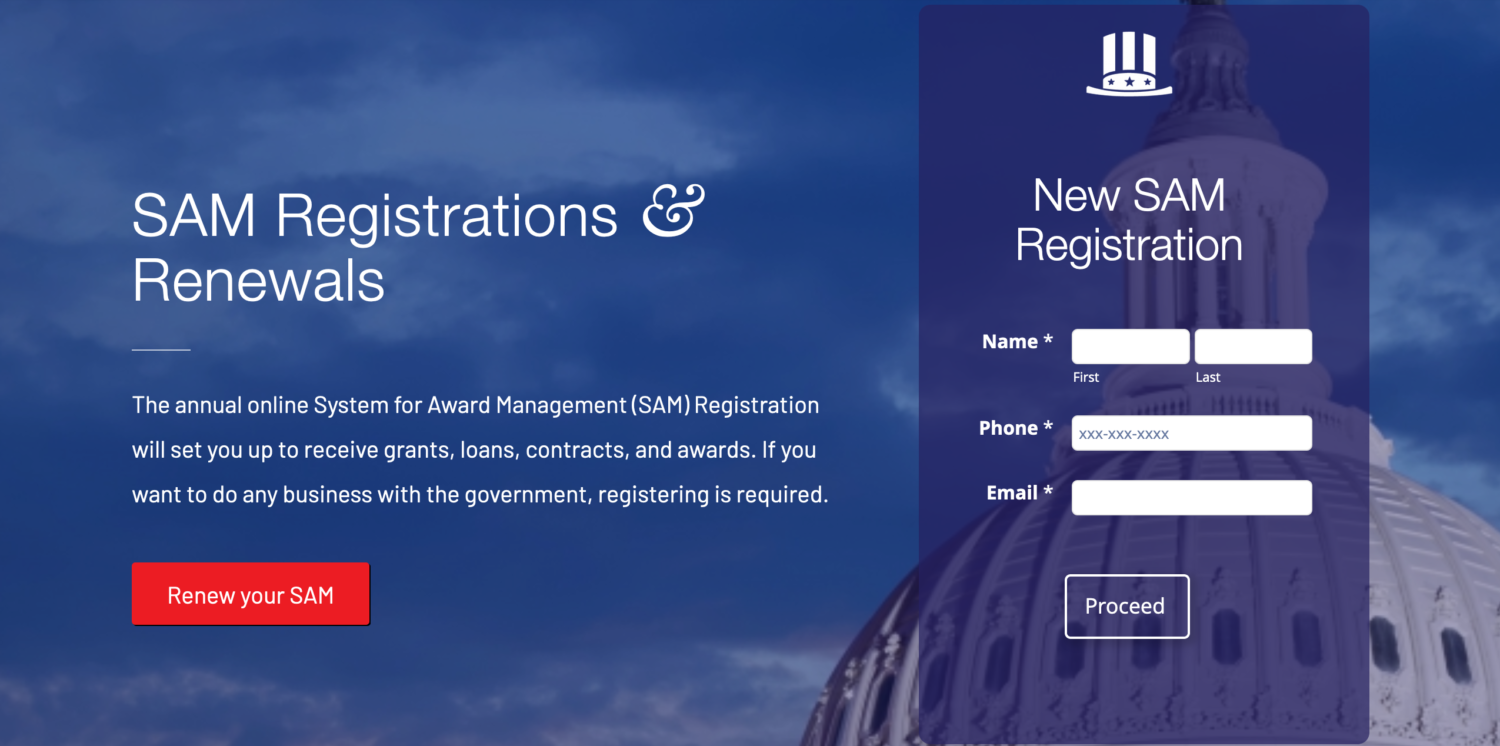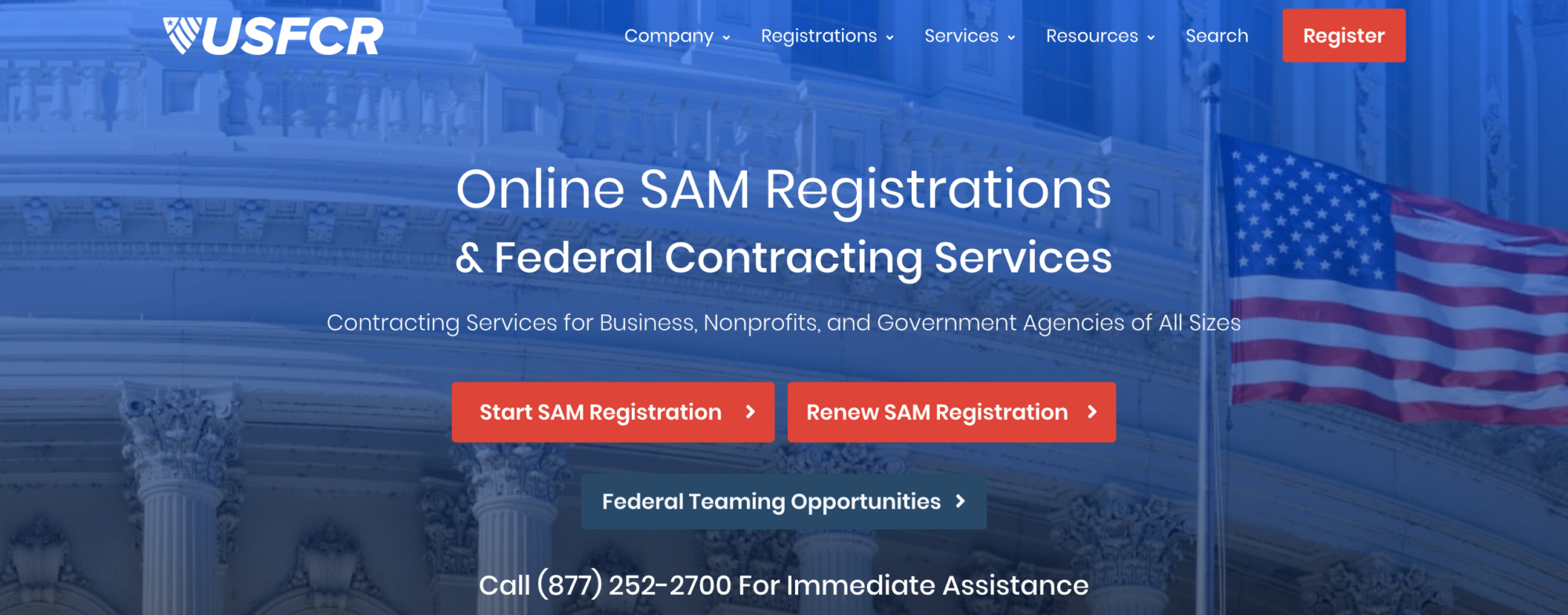
Federal Contractor Registry
TINA.org flags SAM.gov imposters.
In a recent comment filed in support of the FTC’s proposed Rule on Impersonation of Government and Businesses, TINA.org noted a trend of private, for-profit companies posing as the System for Award Management (SAM.gov), an official website of the U.S. government.
In order to be eligible to receive grant money from the federal government, including COVID relief funds, businesses and organizations must register at SAM.gov. SAM registration, which is also required to bid on government contracts, is relatively simple — and 100% free. And not only is it free to register, it’s free to renew registration, which can also be done through SAM.gov.
Yet some firms design their websites to look like the government website – including through the use of the official SAM.gov logo and/or other government seals, a practice that would be prohibited under the FTC’s rule – without adequately disclosing that they’re actually third-party, for-profit companies and that the same registration and renewal services for which they charge hundreds to thousands of dollars are available for free on the actual SAM.gov site.
In its comment, TINA.org identified several companies engaging in such deception, including GetSAMNow.
On GetSAMNow.com, the company does not disclose that the services it offers are available free of charge at SAM.gov, though it does link to the government site. The company does disclose that “GETSAMNow is a third-party organization” but this important information appears inconspicuously below links prompting users to “Renew Your SAM” and “Proceed” with a “New SAM Registration” at the top of the page. (According to the FTC, material information must be clearly and conspicuously disclosed.)
GetSAMNow charges $299 a year for its registration and renewal services.
In the last five years, consumers have reported losing more than $2 billion to government and business imposter scams. Among other things, the FTC’s proposed rule would allow the agency to recover money from scammers who harm consumers in violation of the rule.
Read more about TINA.org’s efforts to eradicate deceptive marketing in this area here.
Our Ad Alerts are not just about false and deceptive marketing issues, but may also be about ads that, although not necessarily deceptive, should be viewed with caution. Ad Alerts can also be about single issues and may not include a comprehensive list of all marketing issues relating to the brand discussed.
TINA.org flags SAM.gov imposters.
TINA.org flags SAM.gov imposters.
TINA.org flags SAM.gov imposters.


